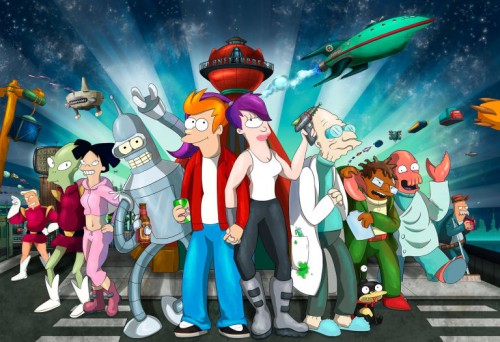What do you want when you’re the customer? What a simple benchmark, and one that we should all strive for when we’re serving customers. So why is it so hard for others to use such a simple benchmark? I think it’s just a matter of paying attention. Too many people are just skating through their day with no thought other than getting to the end of their shift. There’s seems to be no sense of ownership. Years ago businesses were family-run and people understood the value of good customer service. The store, and the people who worked there, were a package deal. They greeted you when you came in. They thanked you when you left, and encouraged you to “come on back and see us.”

So what’s changed?
I think it’s a short term outlook. The feeling that this is only temporary, so why care. Whether temporary or not we should all care. My list of job stops is long and circuitous. I didn’t know it at the time, but each of those jobs provided valuable lessons in customer service. Whether it was working for a general contractor, or playing in a rock and roll band (yeah, use your imagination for seeing me with longish hair and a polyester shirt), or installing burglar alarms, managing a retail store or selling cars. Watching the people around me provided infinite lessons on how to, or not to treat customers. While your list of jobs is different, your life experience is no doubt similar.
And let’s not forget that every day of our lives we, too, are the customer. We are exposed to countless instances of customer service in person, on the phone, online, and in email. Are you paying attention to how you’re treated? I’ll bet you are. Are you paying the same attention to how you’re treating your customers? Maybe. I’d like to believe that when someone provides me with less than stellar customer service, they would not be happy if the tables were turned. I’d like to believe that. I don’t know if it’s always true. My benchmark for excellent customer service is different than yours, because my history of receiving and giving customer service is different.
Fall short, meet or exceed
When I speak about the customer experience (in my presentation “Creating an Exceptional Customer Experience”) I say that there are three possible outcomes from every customer interaction: 1) fall short of their expectations; 2) meet their expectations or 3) exceed their expectations. We all know that falling short is unacceptable, but so is meeting their expectations. Why? Because when you meet someone’s expectations, they got what they wanted and then they just go away. They don’t feel any better about it, or any worse, but they just go on to their next interaction. You’ve forever lost the chance to wow them, to stand out or to be memorable. The thing is, being memorable, in a good way, doesn’t have anything to do with money. It’s merely about paying attention, being present in the moment, and treating them the way you’d want to be treated.
What’s the benchmark?
When I created a new Customer Relations team at a large media company I asked them “When you’re the customer, how many calls, or emails, do you want to make when you have a question or problem?” My team all said “One!” Then I asked “On that one phone call, how many times do you want to be transferred?” They all answered, emphatically “None!” I said “Great, that’s your benchmark, now go and do that.” So we trained them to handle most of the things that people would call or email about, and if they didn’t have an answer, instead of transferring the customer, they would get the answer and then get back to the customer, not leave them hanging. I also wanted them to answer the phone “Hi, thanks for calling _____, my name is Alan and I can help you today.” Wouldn’t that be a refreshing thing to hear when you called customer service? I think so.
So easy, yet so hard
If it’s as easy as treating people the way you’d want to be treated, and getting the resolution you’d want, why isn’t that the norm? Why are we mistreated, or underserved so often? I think it simply goes back to taking ownership of your work. Taking pride in making people’s days a little brighter because they heard a friendly voice and got what they wanted, the first time. Smiling doesn’t cost a thing and doesn’t take any more time than being grouchy.
Find a way to say yes
I was talking to a customer the other day who’s brining me in to train their venue sales team. One of their issues is that they are too strict in sticking to their rules. There are often times when we all have to say No to a customer. But instead of just saying No, our goal should be to find a way to say Yes, every time. If you can’t give them what they wanted, offer a fair alternative solution. When you’re the customer do you like to hear No? I doubt it. But an “I can’t do that, but here’s what we can do…” is a much better way to handle it. Try to be present and use the benchmark of what you’d want to happen if you were the customer, and teach that to your team. If we all live by that Golden Rule, we’ll all be happier, and more successful.
Alan Berg is a business consultant and the wedding and event industry’s only Certified Speaking Professional®, the highest-earned designation for a professional speaker, and a featured speaker at Catersource® each year. Find out more at www.AlanBerg.com. Get more business ideas at Alan’s online learning portal www.WeddingIndustryInsiders.com




